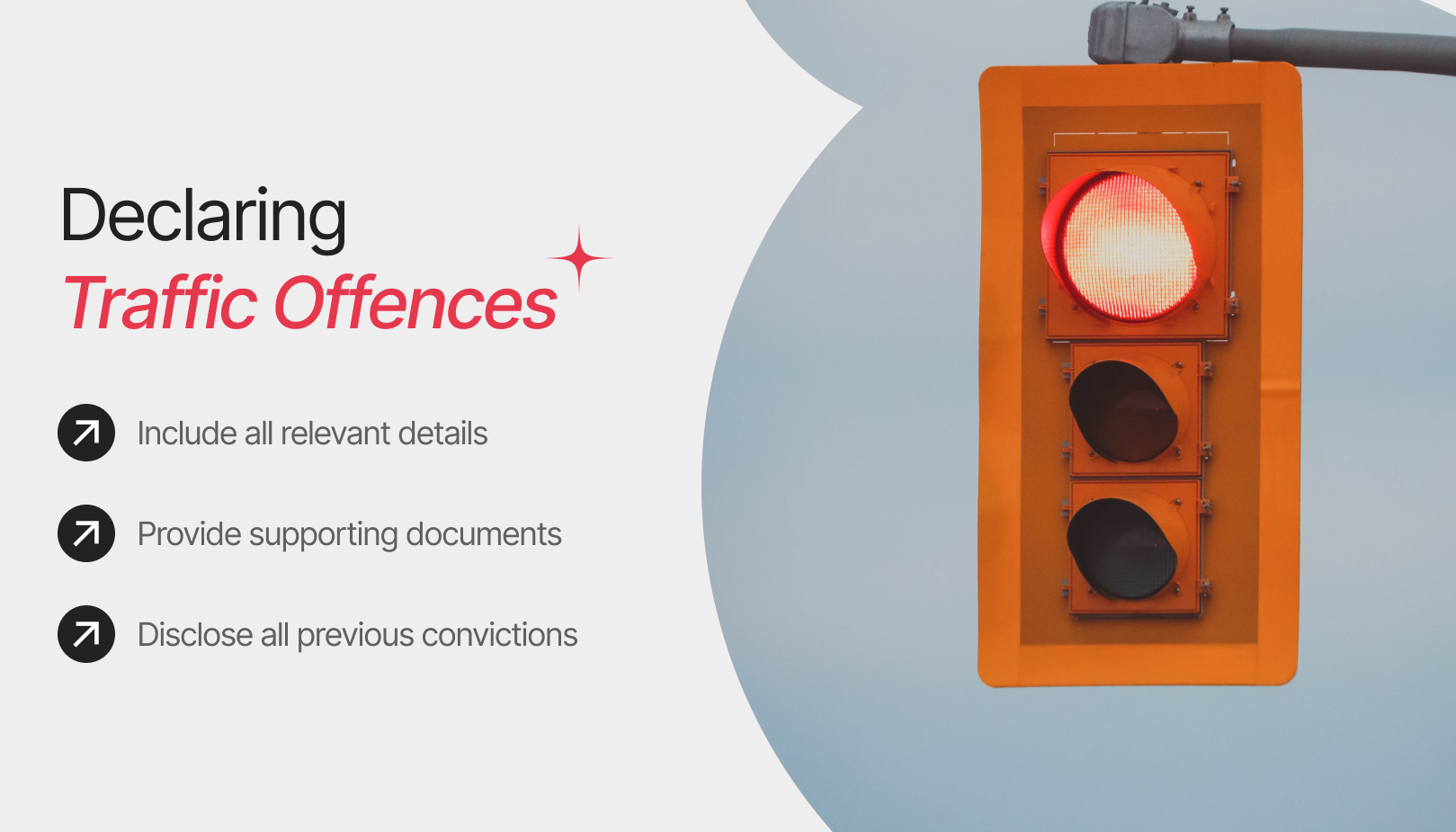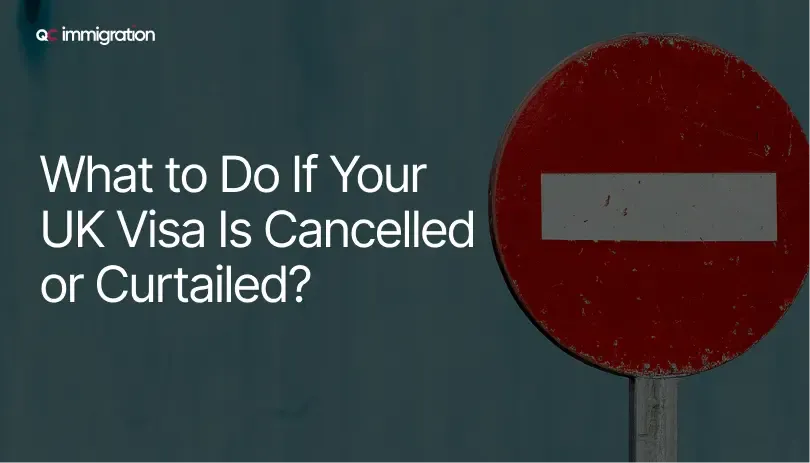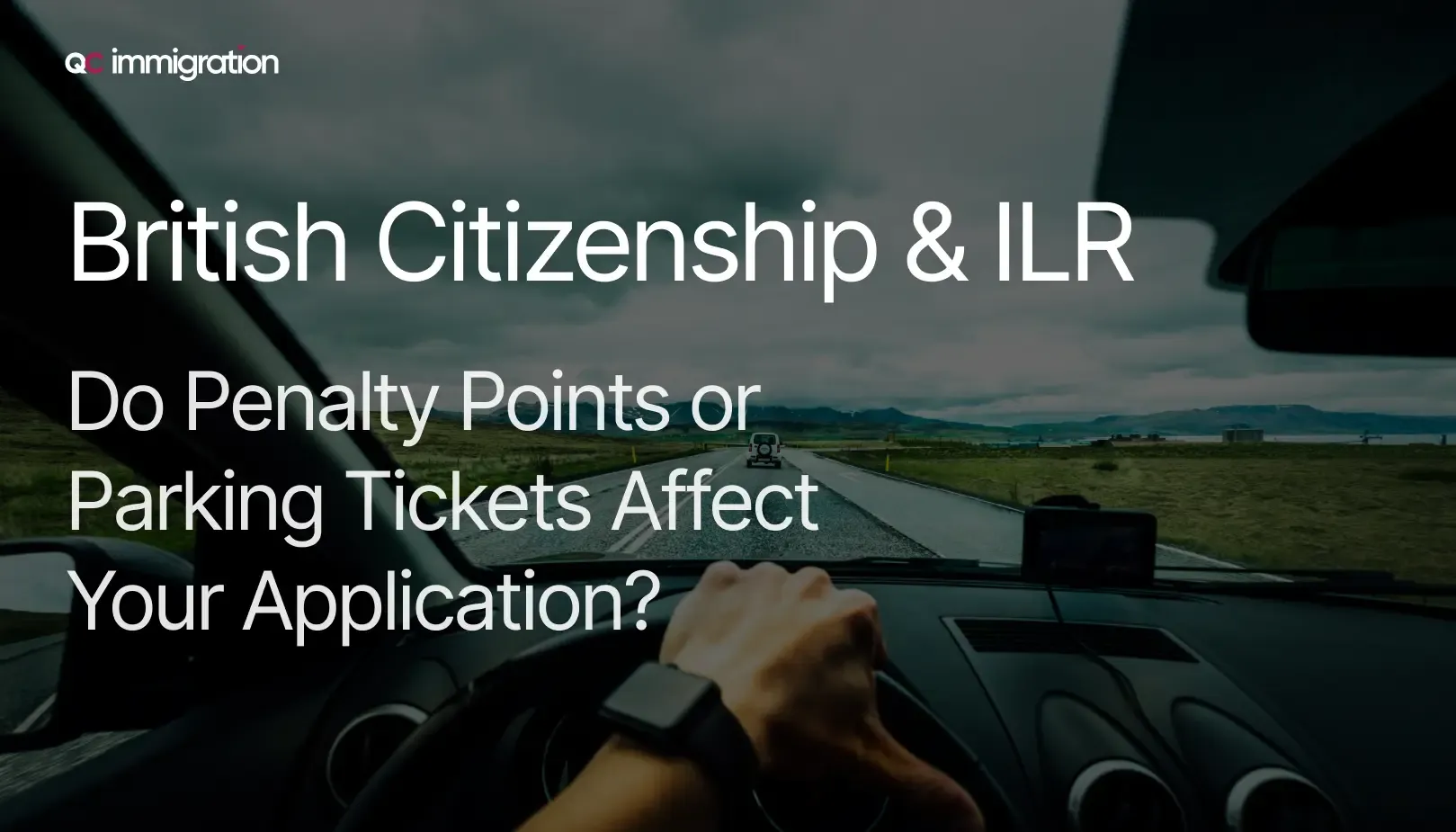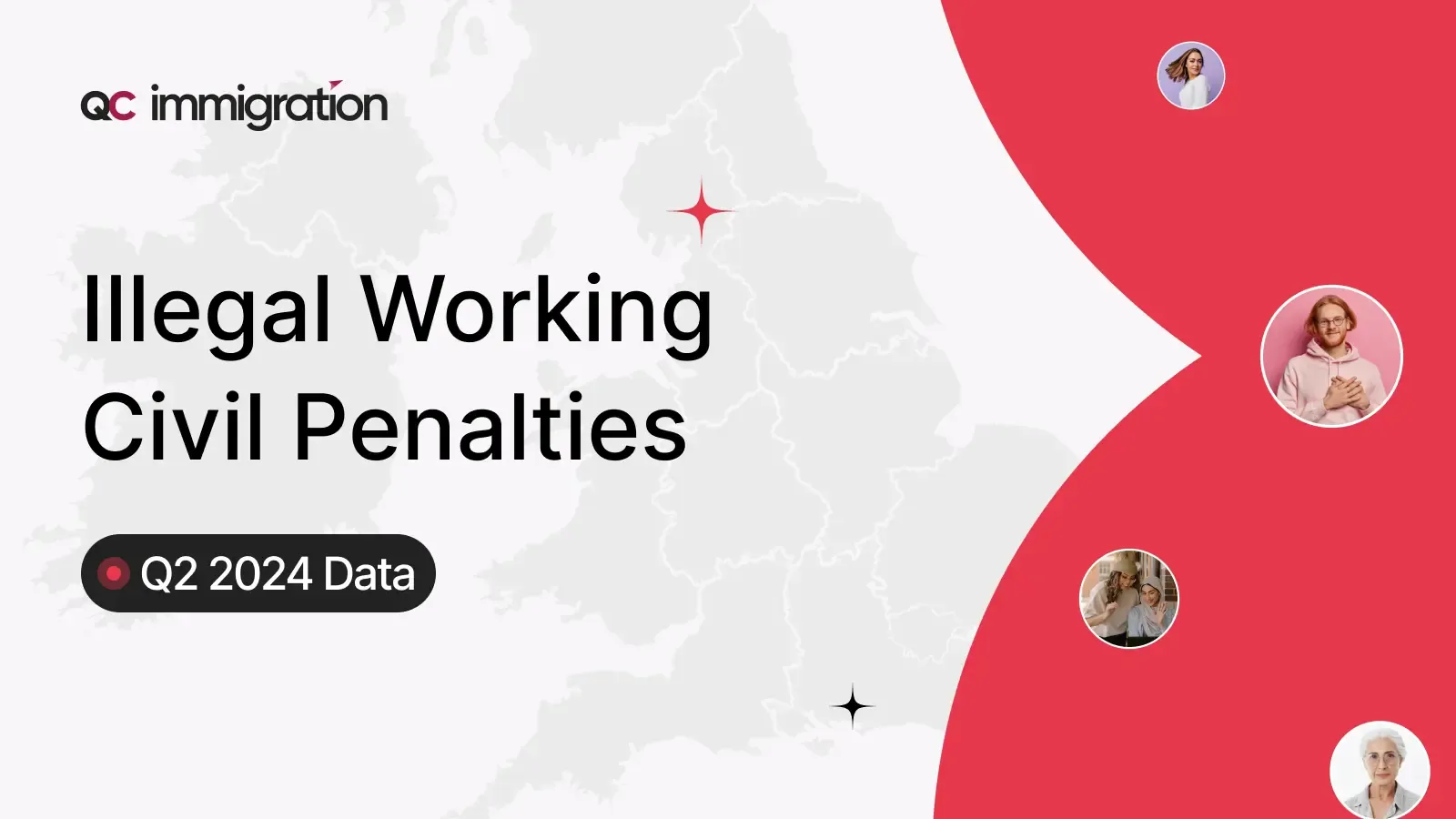Key Takeaways
Having penalty points on your driving licence does not automatically disqualify you from Indefinite Leave to Remain (ILR) or British Citizenship. However, all offences must be disclosed, as failure to do so can lead to refusal.
The Home Office assesses Citizenship applicants based on their overall behaviour, including driving offences. Minor infractions like speeding are unlikely to cause issues, but repeated offences or serious violations (e.g. drunk driving) may negatively impact your application.
All penalty points, fines, and fixed penalty notices must be declared in the application. Non-disclosure may be considered deception, leading to refusal and future immigration issues.
Paying fines promptly, avoiding further offences, and seeking legal advice if you have multiple infractions can improve your chances of a successful application. If in doubt, consulting an immigration lawyer is recommended.
What are the penalty points on a Driving Licence?
In the UK, driving offences can result in penalty points added to your licence, fines, or even driving bans in severe cases. Understanding how penalty points work and the offences that carry them is crucial, as even three penalty points, if not handled correctly, can impact your application for British Citizenship.
How Do Penalty Points Work?
Penalty points are recorded on your driving licence for 4 to 11 years, depending on the severity of the offence. Accumulating 12 or more points within three years can lead to a driving disqualification. For new drivers (within two years of passing their test), collecting six points results in an automatic licence revocation.

Types of Driving Offences
Driving offences in the UK generally fall into two categories:
- Dangerous driving – includes reckless behaviour that puts others at significant risk.
- Careless or inconsiderate driving – includes minor infractions like tailgating or lane discipline issues.
Driving under the influence of alcohol or drugs is a separate offence but can be classified as either dangerous or careless driving, depending on the circumstances.
How Long Do Penalty Points Stay on Your Licence?
Penalty points remain on a driving licence for 4 to 11 years, depending on the severity of the offence.
- Depending on the violation, the period starts from the date of the offence or the date of conviction.
- Minor offences like speeding typically stay on record for four years.
- More serious offences, such as dangerous driving or drunk driving, can remain for 11 years.
Common Causes of Traffic Violation
Speeding
- Minimum penalty: £100 fine + 3 points
- Exceeding the speed limit by a large margin could result in a court summons, higher fines, six points, or a driving ban.
- Some first-time offenders may be offered a speed awareness course instead of points.

Using a Mobile Phone While Driving
- Using a hand-held phone while driving (including stationary in traffic) is illegal.
- Penalty: £200 fine + 6 points.
- New drivers face an immediate licence revocation.
Careless Driving (Driving Without Due Care and Attention)
- Includes poor lane discipline, tailgating, or distracted driving.
- On-the-spot penalty: £100 fine + 3 points.
- More serious cases could result in a court summons, larger fines, or disqualification.
- If careless driving leads to a fatal accident, penalties can include a driving ban, unlimited fine, or up to five years in prison.
Data on Driving Licence Points
According to the 2023 data, approximately 34.52 million English residents aged 17 and above have a full driving licence. This represents about 74% of the English population within this age group.
Data from the same period shows that around 2.7m or 8% of drivers have points on their driving licence.
!chart=Drivers with Penalty Points
Do penalty points affect British citizenship applications?
The British Nationality Act 1981 legally requires individuals applying for Naturalisation as British citizens to demonstrate good character. This involves complying with UK laws and showing respect for the rights and freedoms of others.
When applying for British Citizenship, you must satisfy the "good character" requirement, which considers various aspects of your conduct, including:
- Criminal convictions
- Civil penalties
- Financial affairs
- Immigration history
- Driving offences
A common misconception is that minor traffic offences are inconsequential; however, the Home Office considers overall behaviour and legal compliance. Therefore, when assessing criminality, any driving offences (e.g., drunk driving) and endorsements on your driving licence (including penalty points for speeding) must be disclosed in your application.
Minor traffic offences, such as fixed penalty notices, typically do not impact the good character assessment unless they are not disclosed. While the offence may be minor, failing to declare it can be problematic. Non-disclosure may lead to the refusal of your application, as it significantly affects the good character evaluation.
Additionally, if a fixed penalty notice was received but not settled—resulting in endorsements, court action, or a criminal record—or if you have accumulated multiple fixed penalty notices, these factors will be considered when assessing your good character.

Declaring Traffic Offences on Your Citizenship Application
The Home Office has a strict stance on disclosure, emphasising that honesty is the best policy. Being transparent about driving offences saves time, prevents complications and aligns with the integrity expected of prospective British citizens.
While having three penalty points on your driving licence will not automatically cause issues with your application, you must declare all traffic offences, regardless of how minor they may seem, to meet the good character requirement.
Why Full Disclosure Matters
Failing to declare traffic offences, including penalty points and fixed penalty notices (FPNs), can be considered deception and may result in:
- Your application being refused
- Future immigration applications being affected
- Potential citizenship revocation if discovered after naturalisation
The Home Office takes non-disclosure seriously, viewing it as an attempt to mislead. Even minor infractions should be included to avoid any risk of refusal.

How to Declare Traffic Offences
- Include all relevant details: Declare all driving licence points, speeding tickets, and fixed penalty notices in your application.
- Provide supporting documents: If you have endorsements on your driving licence, access the DVLA website to download and print a summary of your driving record or provide the paper counterpart.
- Disclose all previous convictions: Even convictions considered spent under the Rehabilitation of Offenders Act 1974 must be included.
The Importance of Transparency
Your application is assessed on your overall character, and honesty plays a crucial role in this evaluation. Failing to disclose minor offences can lead to a refusal, as the Home Office may view non-disclosure as an attempt to conceal information.
By fully disclosing all traffic offences, you demonstrate integrity and ensure your British citizenship application proceeds smoothly without unnecessary complications.
Tips for Applying with Fixed Penalty Notices (FPNs) or Penalty Points
The Home Office assesses driving offences based on their severity and circumstances. In most cases, three penalty points on your licence are considered a minor infraction and this alone typically will not prevent you from obtaining British Citizenship.
Key Considerations for Your Application:
- Pay Fines Promptly: If you receive a penalty for a traffic violation, ensure you pay the fine immediately. Settling it promptly helps prevent it from appearing negatively on your immigration records.
- Handle Fixed Penalty Notices Responsibly: If you receive a fixed penalty notice, address it immediately to avoid further complications.
- Avoid Further Offences: If you already have penalty points, take extra care to prevent accumulating more, as repeated offences may impact your good character assessment.
- Consider Timing: If you plan to apply for Citizenship in the future, check whether your penalty points will be spent or expired by the time you submit your application.
- Disclose All Relevant Information: Be transparent about penalty points or driving offences. Failing to disclose even minor infractions can lead to refusal on the grounds of misleading the Home Office.
- Pattern of Behaviour Matters: A single instance of three penalty points is unlikely to raise concerns. However, multiple offences or a history of repeated violations may suggest disregarding UK laws, which could negatively impact your application.
- Provide Context or Mitigating Circumstances (If relevant): If your offence was an isolated incident, consider explaining the circumstances in your application. For example, if you were speeding due to an emergency, this could provide helpful context.
- Seek Professional Advice: Consulting an immigration lawyer can help you navigate the application process, take precautions, address any concerns and present legal arguments related to penalty points.
When is a traffic offence considered spent?
In the UK, minor traffic offences typically become spent after 5 years. However as a matter of best practice, spent offences should still be disclosed in good faith. Certain traffic offences leading to court attendance or severe penalties will be scrutinised even if they are spent. The relevance duration of a traffic offence can vary based on severity and type.
What Happens If Your Application Is Refused?
If your application is refused due to concerns about your good character, you will typically receive a detailed explanation from the Home Office. Depending on the reasons for refusal, you may:
- Appeal the refusal by requesting a reconsideration.
- Reapply at a later date (once penalty points are no longer on your record or other issues are resolved).
- Seek legal advice to explore your options.
Summary
Having up to three penalty points on your driving licence may not automatically disqualify you from applying for British Citizenship. However, full disclosure is essential, as honesty plays a crucial role in good character assessment. The Home Office reviews applications on a case-by-case basis, demonstrating that you are a law-abiding and responsible member of society can improve your chances of a positive outcome.
Navigating the complexities of a UK citizenship application can be challenging, particularly when traffic offences are involved. If you are unsure how penalty points might impact your application, seeking advice from a UK immigration expert is highly recommended.
While up to three points on your licence alone is unlikely to prevent a successful citizenship application, you should consider seeking legal advice if:
- The points were received recently.
- You have additional driving offences.
- Other factors may affect your good character assessment.
- You are unsure how to declare the points correctly.
The Home Office evaluates applications individually, considering the severity and frequency of offences alongside any compelling circumstances. Repeated violations or a pattern of non-compliance can negatively impact your application and may lead to refusal.
Ultimately, each case is assessed on its own merits, with the Home Office focusing on your overall pattern of behaviour rather than isolated infractions. If you are concerned about how your penalty points might affect your application, consulting an immigration specialist can provide clarity and tailored guidance.
Disclaimer: This article provides general information about British citizenship applications and driving licence points. For advice specific to your situation, please consult a qualified immigration lawyer.








